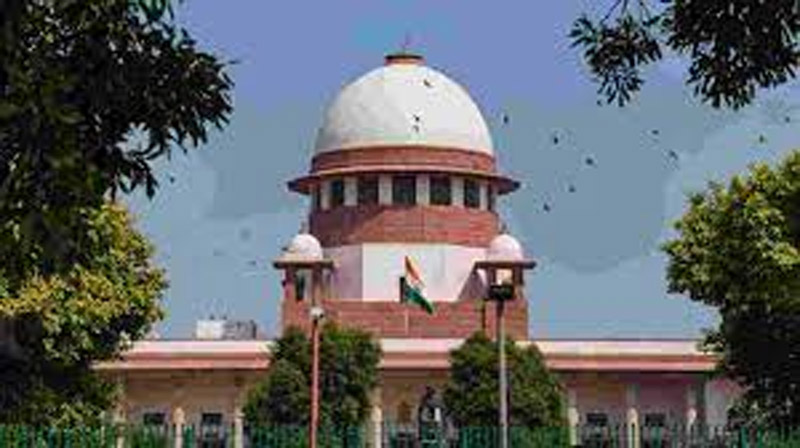NEW DELHI, Jan 31:
The Supreme Court on Tuesday agreed to consider the Centre’s submissions for an open court hearing of its plea seeking review of the judgement by which several provisions of the Benami Transactions (Prohibition) Amendment Act, 2016 were struck down.
A three-judge bench headed by then CJI N V Ramana, since retired, on August 23 last year had struck down section 3(2) and section 5 of the Benami Transactions (Prohibition) Act, 1988, and one of the provisions which provided for the punishment of a maximum jail term of three years or a fine or both for those indulging in ‘benami’ transactions.
The top court had also held that the amended Benami law of 2016 did not have retrospective application and the authorities cannot initiate or continue criminal prosecution or confiscation proceedings for transactions entered into prior to the coming into force of the legislation.
The Centre, represented by Solicitor General Tushar Mehta, on Tuesday urged a bench comprising Chief Justice D Y Chandrachud and Justice P S Narasimha that its review plea be heard in open court, keeping in mind the importance of the issue.
“This is an unusual request. We seek an open court hearing of the review. Due to this judgement, a lot of orders are being passed even though some of the provisions of the Benami Act were not even under challenge. Like the retrospectivity could not have been looked into (by the SC bench),” the top law officer said.
“We will consider it,” the CJI said.
Except death penalty cases, review pleas are usually decided by judges concerned in chambers by circulation. The top court, on August 23 last year, struck down two provisions of the amended Benami law of 2016.
The court had termed the provisions as “unconstitutional” on the grounds of “manifestly arbitrary”, saying they were vague and arbitrary.
It had said the continued presence of an unconstitutional law on the statute book did not prevent it from holding that such unconstitutional laws cannot enure to the benefit of or be utilised to retrospectively amend laws to cure existing constitutional defects.
“In view of the fact that this Court has already held that the criminal provisions under the 1988 Act were arbitrary and incapable of application, the law through the 2016 amendment could not retroactively apply for confiscation of those transactions entered into between September 5, 1988, to October 25, 2016, as the same would tantamount to punitive punishment, in the absence of any other form of punishment,” a bench headed by Ramana had said.
The verdict had come on the appeal of the Centre challenging the Calcutta High Court judgement in which it was held that the amendment made in the 1988 Act in 2016 would be applicable with prospective effect.
The Centre had contended that the 2016 Act would be applicable retrospectively.
The 1988 Act was made to prohibit Benami transactions and the right to recover property that is held to be ‘benami’.
“It is in this unique circumstance that confiscation contemplated under the period between September 5, 1988, and October 25, 2016, would characterise itself as punitive if such confiscation is allowed retroactively,” the bench had said. (PTI)


